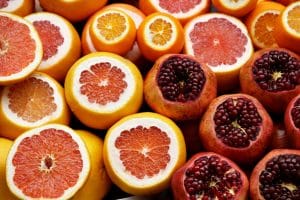Gut-Brain Axis Foods: Prebiotics Meets Mental Health in Every Bite
The gut-brain axis is the interconnection between our gut and our brain, which allows communication between the two and plays a crucial role in our overall health and well-being. While this concept may seem relatively new, scientists have been studying the link between gut health and mental health for decades. And one of the most interesting discoveries they have made is the importance of prebiotics in promoting a healthy gut-brain axis.
Gut-Brain Axis Explained
The gut-brain axis is a bidirectional communication system between the central nervous system (CNS) and the enteric nervous system (ENS) – the network of nerves that controls our digestive system. It involves various biochemical signaling processes that occur between the gut microbiome and the brain, through the vagus nerve, hormones, and immune system responses.
The gut microbiome is a diverse community of microorganisms that reside in our digestive system. These microbes play a crucial role in our health, from aiding digestion to influencing our immune system and even our mood and behavior. In fact, our gut microbiome is referred to as our ‘second brain’ because of its close relationship with our brain and how it affects our mental health.
Gut-Brain Axis and Mental Health
Our gut and brain are in constant communication, and any disruption in this communication can have significant effects on our mental health. Research has shown that an unhealthy gut microbiome can contribute to various mental health conditions, such as anxiety, depression, and even autism and Alzheimer’s disease.
But how does the gut microbiome affect mental health? One of the main ways is through the production of neurotransmitters – chemicals that transmit signals between neurons in our brain. The gut microbiome produces a significant amount of these neurotransmitters, including serotonin, dopamine, and gamma-aminobutyric acid (GABA), which all play a crucial role in regulating our mood and emotions.
Moreover, our gut microbiome also influences the production of hormones that regulate stress and anxiety, such as cortisol. An imbalance in the gut microbiome can lead to an increase in the production of these stress hormones, which can have a significant impact on our mental health.
The Role of Prebiotics in Promoting a Healthy Gut-Brain Axis
Prebiotics are fibers that the human body cannot digest, but instead, they act as food for the beneficial bacteria in our gut. These fibers can be found in various foods, and when consumed, they help promote the growth of good bacteria, which in turn helps maintain a healthy balance in our gut microbiome.
Studies have shown that prebiotics can play a crucial role in supporting a healthy gut-brain axis. By promoting the growth of beneficial bacteria, prebiotics can help increase the production of neurotransmitters and hormones that regulate our mood, resulting in improved mental health.
Furthermore, prebiotics also have a positive impact on our immune system, which is closely linked to both our gut health and mental health. By promoting a healthy immune system, prebiotics can help reduce inflammation in the gut and brain, which is often associated with mental health conditions.
The Best Gut-Brain Axis Foods: Prebiotics Meets Mental Health
So, what are the best gut-brain axis foods that can provide us with prebiotics to support our mental health? Here are some of the top sources of prebiotics:
1. Garlic and Onions
Both garlic and onions are rich in inulin – a prebiotic fiber that helps stimulate the growth of good bacteria in the gut. They also contain sulfur compounds that have been shown to protect against inflammation, which can have a positive impact on our mental health.
2. Bananas
Bananas contain high amounts of resistant starch, which is a type of prebiotic fiber. Resistant starch acts as a prebiotic by bypassing the small intestine and getting fermented in the colon, where it promotes the growth of beneficial bacteria.
3. Whole Grains
Whole grains, such as oats, quinoa, and brown rice, are excellent sources of prebiotic fibers. They also provide essential vitamins and minerals that support both gut and brain health.
4. Asparagus
Asparagus contains a type of prebiotic fiber called fructooligosaccharides (FOS), which has been shown to improve the composition of gut bacteria and reduce symptoms of anxiety and depression.
5. Chicory Root
Chicory root is a rich source of inulin and has been used as a natural remedy for digestive issues for centuries. Studies have also shown that chicory root can help improve gut health and promote a healthy balance of gut bacteria.
In Conclusion
The gut-brain axis is a complex and vital system that plays a significant role in our mental health. And by incorporating gut-brain axis foods that provide prebiotics in our diet, we can support this important connection and promote overall well-being. So, the next time you think about improving your mental health, don’t forget to consider the impact of your gut health, and reach for prebiotic-rich foods that nourish both your gut and brain.










